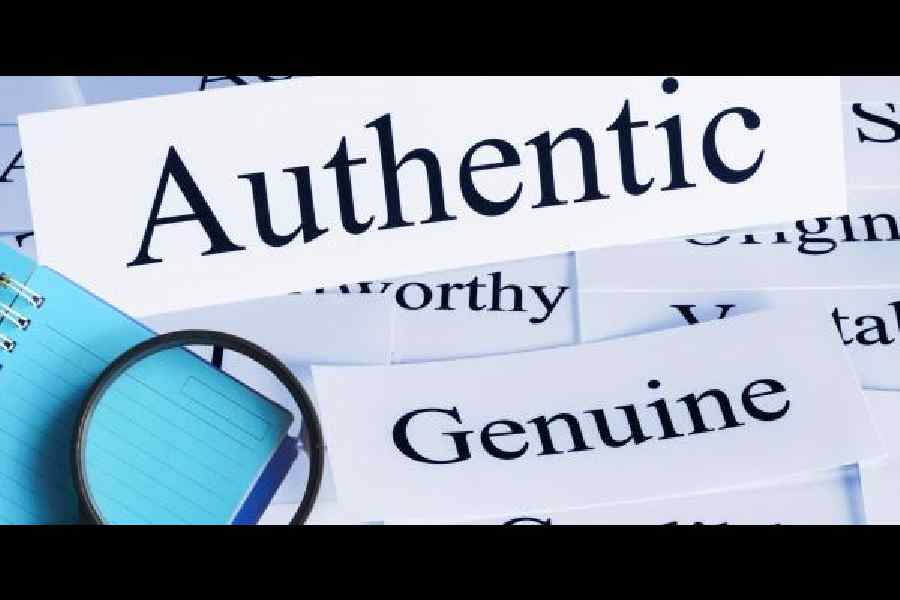In 2023, authentic information is valued in terms of gold. No wonder, Merriam-Webster chose “authentic” as the word of the year. America’s oldest dictionary selected the word after it landed among the most-looked-up words in the dictionary’s 500,000 entries.
This has been the year that Chat GPT disrupted academic integrity and AI made Hollywood actors and writers go on a strike. Further, celebrities like Prince Harry and Britney Spears sought to tell their “authentic” stories. On social media, millions signed up on BeReal, which encourages users to put their “authentic” pictures out there. And Elon Musk told brands to be more “authentic” on X (formerly Twitter) before deciding to charge them all $8 a month to prove their identity. We’re so accustomed to influencers finely honing their “authentic” personas that anything smacking of relatability is probably too relatable to be true.
“Authentic has a number of meanings including ‘not false or imitation’, a synonym of real and actual; and also ‘true to one’s own personality, spirit, or character’. Although clearly a desirable quality, authentic is hard to define and subject to debate — two reasons it sends many people to the dictionary. And with the rise of artificial intelligence — and its impact on deepfake videos, actors’ contracts, academic honesty, and a vast number of other topics — the line between ‘real’ and ‘fake’ has become increasingly blurred,” said a representative of Merriam-Webster in a statement.
The publisher said it has also been a term celebrated by the likes of singers Lainey Wilson, Sam Smith and Taylor Swift, who have all made headlines this year with statements about seeking their “authentic voice” and “authentic self”.
When Beatles delivered their “final” record, Now and Then, many wondered if AI had been used to modify John Lennon’s voice to the point it wasn’t “authentic”. Paul McCartney had to clarify: “Nothing has been artificially or synthetically created. It’s all real and we all play on it. We cleaned up some existing recordings — a process which has gone on for years.”
The words ‘authentic’ and ‘authenticity’ derive from the Greek ‘authentes’, which can denote “one who acts with authority” or “made by one’s own hand”. In Greek mythology, there was another meaning. The literary critic Lionel Trilling noted that ‘authentes’ was “not only a master and a doer, but also a perpetrator, a murderer”. His series of lectures in 1970, later published as Sincerity and Authenticity, offers an in-depth look. He wrote: “What destroys our authenticity is society.”
The rise of artificial intelligence has definitely blurred the lines between what is real and what is not, making everyone famous prove their authenticity. One of the other words to stand out in searches this year, according to the dictionary, is “deepfake”, which is defined by Merriam-Webster as “an image or recording that has been convincingly altered and manipulated to misrepresent someone as doing or saying something that was not actually done or said”. One of the most notable news stories of the year about deepfake images was of those appearing to show former US president Donald Trump being detained by police in a dramatic fashion back in March.
Some of the other words that stood out in 2023’s look-up data are coronation, dystopian, EGOT, implode, doppelganger, covenant, kibbutz, elemental, X and indict. Also in the top of lookups has been ‘rizz’: “As a noun, rizz means ‘romantic appeal or charm’ (as in ‘a bro who has rizz’); as a verb (typically used with up, as in ‘rizz up that cutie’) it means ‘to charm or seduce.’










